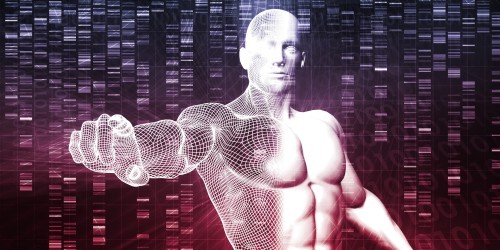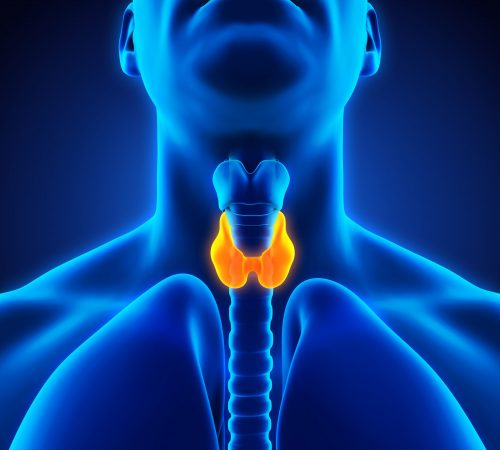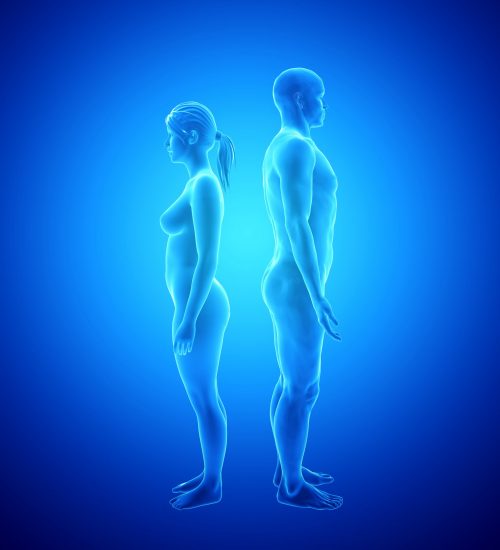Human Growth Hormone – Fountain of Youth or Pseudoscience?

Part 1
Sylvester Stallone, Nick Nolte, Oliver Stone, Charlie Sheen and Mickey Rourke are big Hollywood A-listers that are all openly using Human Growth Hormone (HGH). It’s not the clean Hollywood air that gives them that youthful glow year after year as if time stands still for them, while the rest of us age disgracefully. Sure, there’s some plastic surgery involved but hey, who’s judging? HGH is big business in the states, the search to defy father time, halt and even reverse the aging process. Is HGH worth the hype or is it just pseudoscience?
Certainly, a lot of people think so despite there not being any concrete evidence behind it’s use as an anti-aging agent. There are clearly a lot of case studies and anecdotal evidence supporting its use, but this wouldn’t be considered weighted evidence. In my opinion, there never will be a large double blind randomised controlled study proving or disproving its use for this purpose. HGH simply doesn’t tick the boxes to justify a pharmaceutical company or the medical community investing the time and energy into addressing this field. Whether there be an element of pseudoscience or not, does using HGH make perfect sense? If you are a competent adult, is it surely not your right to make informed decisions about your health? The American Academy of Anti-Aging Medicine certainly think so.
HGH has been used for many years as a performance enhancing drug. It is still being used in professional sports despite anti-doping agencies regularly testing athletes, and high profile scandals punishing athletes caught using it. HGH use was banned by the International Olympic Committee in 1989, however, its use has clearly flourished due to its anabolic and performance enhancing properties. A recent expose by NFL player Peyton Manning highlighted its widespread use – http://bleacherreport.com/articles/2602986-players-say-the-nfl-has-an-hgh-problem-even-if-peyton-manning-isnt-part-of-it#
Let’s not kid ourselves, performance enhancing drugs are everywhere. Athletes clearly have ‘good genetics’ along with the talent, grit and determination needed to succeed. However, a healthy lifestyle, a clean diet and rigorous training regime are not the only tools at their disposal. You are not telling me that the story ends there? I don’t mean to be cynical but it’s sadly human nature. Despite best intentions, it must be difficult not to resist the allure of taking a chemical that will enhance your performance. This raises the question, where do you draw the line? Caffeine is a performance enhancing drug, you voluntarily add that to your body, you don’t ‘need’ it. Having an optimal hormonal profile should be considered healthy and in fact necessary, surely taking a medication that optimises function is fair not cheating?
How else do you ensure a level playing field when you suspect everyone else is manipulating science to gain an advantage. No one cares about 2nd place, no one remembers the person who finished 5th but tried their hardest. If you want to ensure your place in the history books, surely you need to make sure you’ve done everything possible to get there?
Did they all present to their physician complaining of symptoms of Adult Growth Hormone Deficiency? Maybe? Training and competition must take its toll on the body… Did they have the diagnosis confirmed with formal testing and are they following the recommended treatment guidelines? Let’s not be naïve here… HGH is being used as a performance enhancing drug in these circles, and not simply for the normalisation and optimisation of health.
Interestingly, at milder doses, HGH is also being used in the anti-aging field as a way of replenishing your lowering growth hormone levels. Not raising them to the massively supra-physiological levels necessary for dramatic changes in performance wanted in sports. It is believed that at these doses you will experience the benefits of an optimal HGH level. These are reputedly:-
- Increased energy and endurance
- Increased strength and recovery
- Strong immune system
- Increased lean muscle mass and decreased total body fat
- Decreased visceral fat associated with cardiovascular risk
- Increased bone density
- Improved cardiac and lung function, lowering blood pressure
- Improved libido and sexual function
- Improved cardiac function and lipid profile
- Reverses changes in skin associated with aging
- Thicker stronger hair
- Improves mood and sleep patterns
- Improves insulin sensitivity
Is its use comparable to taking a super expensive multi-vitamin, or is it a medication that should be prescribed by your doctor under strict guidance and supervision? It’s clearly the latter as there are also serious risks associated with its misuse or abuse. An adult using HGH for its potential anti-aging properties needs close medical supervision.
There is a risk/benefit analysis that needs to be considered with every medication you take, even if the hormone being used is bioidentical to the hormone naturally produced in your body. It is impossible to mimic your natural physiology and there will inevitably be disruption on some level to other systems in your body.
Production of growth hormone is regulated by a complex and sensitive negative feedback system, much like the hypo-pituitary-gonadal axis discussed in previous blogs. Use of exogenous growth hormone can result in dysregulation of the thyroid gland, it can increase insulin resistance causing diabetes through overproduction of Insulin-Like Growth Factor-1 and it can also increase your risk of cancer.
So, what is growth hormone? GH is a hormone produced by the pituitary gland in the brain. It stimulates growth and regeneration, hence the name. Its production is highest in adolescence when you are growing in stature and developing into adulthood and its production drops off as you age. This decrease is a natural consequence of aging, however there are things you can do to try and minimise this drop. Essentially leading a healthy lifestyle, getting enough sleep, eating well and exercising regularly are all things you should be doing anyway. When this is not enough and your quality of life is suffering, is it not your right to do something proactive about it? It’s your life, live it.
From a biological perspective, you weren’t supposed to live forever, you need to make way for the next generation. You also don’t need to keep growing after adolescence, your bones have fused, you are as tall as you are going to get, you are mature. You do still need a healthy growth hormone level though as cells have a finite lifespan, you are a living breathing organism. Your body must also be able to respond to external factors ranging from environmental toxins to disease, fight these off and still function optimally. Modern medicine has overlooked the importance of human growth hormone in maintaining health and quality of life. You need to decide then, if it’s something YOU want control over…
Keep an eye on The Men’s Health Clinic Facebook page for the next blog:-
Is HGH right for me?
Dr Robert Stevens MBChB MRCGP Dip.FIPT


